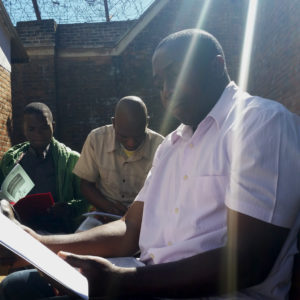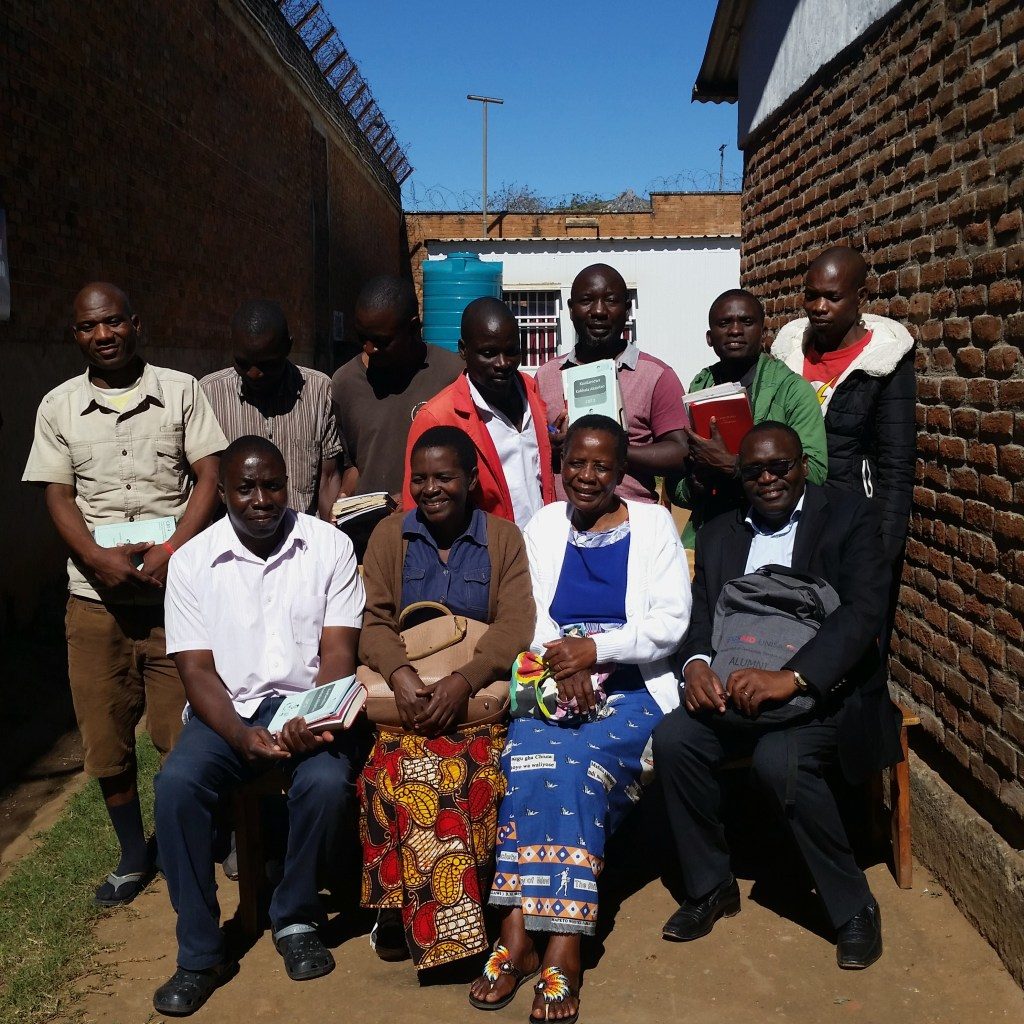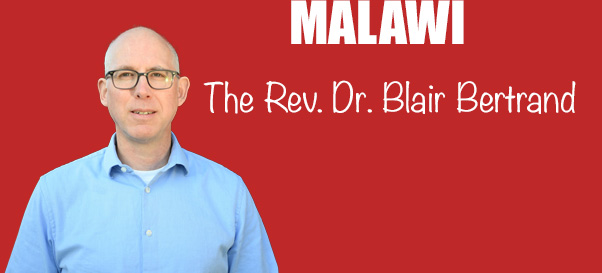Obadiah: Prophet Against Edom

Hastings and elders at Chichiri prison June 2019
Obadiah is a strange little book of the Bible, seldom referred to and almost never preached from. Given this, I was surprised when I arrived at Chichiri maximum security prison to discover about 30 prisoners had gathered to do a Bible study starting at Obadiah 1:1.
One of the things that makes Obadiah different from other more well-known prophets like Isaiah or Amos is that he prophesied against Edom, not Israel. Found in the hill country south and east of the Dead Sea, Edom was the nation that descended from Esau (see Genesis 36 for more details). This is the bad side of the family; the other brother, the black sheep. Obadiah pronounces:
“Because of the violence against your brother Jacob, you will be covered with shame; you will be destroyed forever”.
Obadiah v.10
It is one thing for foreigners like Assyrians or Babylonians to attack Israel, and yet another for a brother, Esau, to participate in the sacking of Jerusalem. God punishes Edom for delighting in the fall of Israel. To rub it in, Obadiah makes sure that Edom knows that God will raise up Israel again, a mercy denied to Edom.
I’m willing to bet that many reading this knew very little of the last paragraph before reading it. And that is why I was surprised when these prisoners were studying it. What could they possibly get from this obscure minor prophet? Through a translator I understood that the prisoners identified with Edom. One told me that their transgressions against their brothers and sisters would be found out by God and that they would be punished. They were the ones who had ransacked and pillaged and stolen. Since many are imprisoned for property crimes (theft etc.), this makes sense. They were Edom.
Chichiri: Judgement Against Prisoners
Some variation of this interpretation is common here in Malawi. I’ve taught both the major and the minor prophets a number of times and invariably students reduce the Biblical message to:
- The day of God’s judgement is coming
- Repent by doing good things
The Bible message becomes a kind of works righteous moralism: if I lead a righteous life then God might not punish me. It is all the more powerful for these prisoners because society tells them that they are immoral, in need of reform. They have been judged and are living testaments to the path of death.
And they are punished. They have no soap, no toothbrushes, and no mats. They don’t have enough food and sleep on concrete floors. Some could leave on bail but don’t have the money to do so. The former government minister commented in February 2019:
“I cannot cheat you. The situation in our prisons is dire not only in terms of infrastructure but as well as diet, security features, transport, equipment that includes uniforms both for warders and inmates.”
Condemned facilities designed to hold 756 prisoners now house 2166; over capacity by 287%. Thinking about freedom also causes despair. Combine the stigma of being a convict with an economy running double digit unemployment numbers, and the chances of gainful employment is slim.
Theological Education: Grace Among Leaders
It isn’t hard to see why these prisoners feel like Edom. The fact that they still gather to read the Bible is a testament to their strength and their desire to change. This is where Theological Education by Extension Malawi (TEEM) comes in. For a number of years, the PCC has supported a ministry called Friends of Prison. My colleague, Rev. Joel Sherbino, was instrumental in organizing this ministry and to his credit and God’s glory, he established an extremely dedicated and competent team of leaders to take over after he left. Rev. Sherbino and the Presbyterian Church in Canada (PCC) continue to support these faithful Christians who visit over a dozen prisons on a weekly basis. The Friends of Prison are tireless in their prayers, in their advocacy, in their care, and in their efforts to bring hope to a desperate situation.
They in turn have helped to establish leadership within the prison population. Some of the prisoners are there for years, decades even. The Holy Spirit has worked in their lives and has given the gift of leadership and teaching to some. Stuck behind high brick walls topped with barb wire, these gifts could go unrecognized. But the Friends of Prison have raised up some of these prisoners into leadership positions. They call Hastings, the man in the white shirt at the top of this post, the “clerk of session”, which is the lead lay person in a Presbyterian congregation. He, along with his “elders”, organize the Bible study. They also evangelize with their fellow prisoners and attempt to do whatever kind of mission work they can. There is no minister involved, a rarity in Malawi, because the Friends of Prison and the prisoners are all lay people.

The elders of Chichiri Prison (front row is Hastings with TEEM Tutors)
Starting this past January, TEEM has partnered with Friends of Prison to bring our Certificate in Theology to Hastings and his group of elders. Today we split off from the Obadiah study so that the elders could start the second of 15 units. The first unit was on Christian leadership and this unit is an introduction to the Old Testament. There are Chichewa workbooks that have exams in them (Samson in the reddish shirt displays one in the pic above). With a Friends of Prison tutor, in this case Mrs. Singano (blue skirt), they work through about 5 pages of material. Today there was much flipping back in forth between Genesis and other books of the Bible. All of it is read out loud and they take notes in their workbooks. Mrs. Singano normally runs the women’s group, but she enjoys leading the men because they are more animated and engaged.
While I was with Hastings and the elders, the Obadiah Bible study ended and the prisoners made their way back to the main prison yard. They will continue next week with Hastings and other elders giving direction. When I asked, the prisoners said they want things I can likely provide–electric shaver for their “barber”, chairs for the chapel, Bibles so everyone has one. They also want a better economy so they can get good jobs when they get out. This is a more complicated request.
Grace to the Edomites
What they didn’t ask for is something that they might not even know that they need–faith, hope, and grace. The goal of training Hastings and his elders as Christian leaders is that they will lead these prisoners into a deeper understanding of who God is. Yes, God judges and condemns humanity for our sin. We are Edom whether we are imprisoned in Chichiri or a minister from Canada. But that is not all who God is. In another prophet, Isaiah, we hear that:
In the last days
the mountain of the LORD’s temple will be established
as the highest of the mountains;
it will be exalted above the hills,
and all nations will stream to it.Many peoples will come and say,
“Come, let us go up to the mountain of the LORD,
to the temple of the God of Jacob.
He will teach us his ways,
so that we may walk in his paths.
The law will go out from Zion,
the word of the LORD from Jerusalem.
He will judge between the nations
And will settle disputes for many peoples.
They will beat their swords into plowshares
And their spears into pruning hooks.
Nation will not take up sword against nation,
Nor will they train for war anymore.
The final words of Obadiah are, “Deliverers will go up on Mount Zion to govern the mountains of Esau. And the kingdom will be the LORD’s.” In other words, even Esau will be gathered to Mount Zion, even Edom will have its disputes settled, and even the prisoners of Chichiri will experience the presence of God in the temple. That is what TEEM is trying to help them understand by training their leaders.


